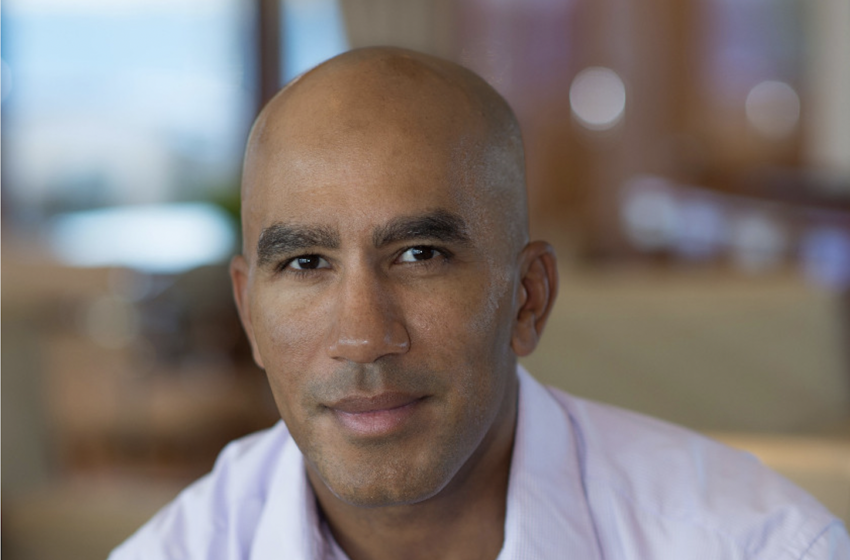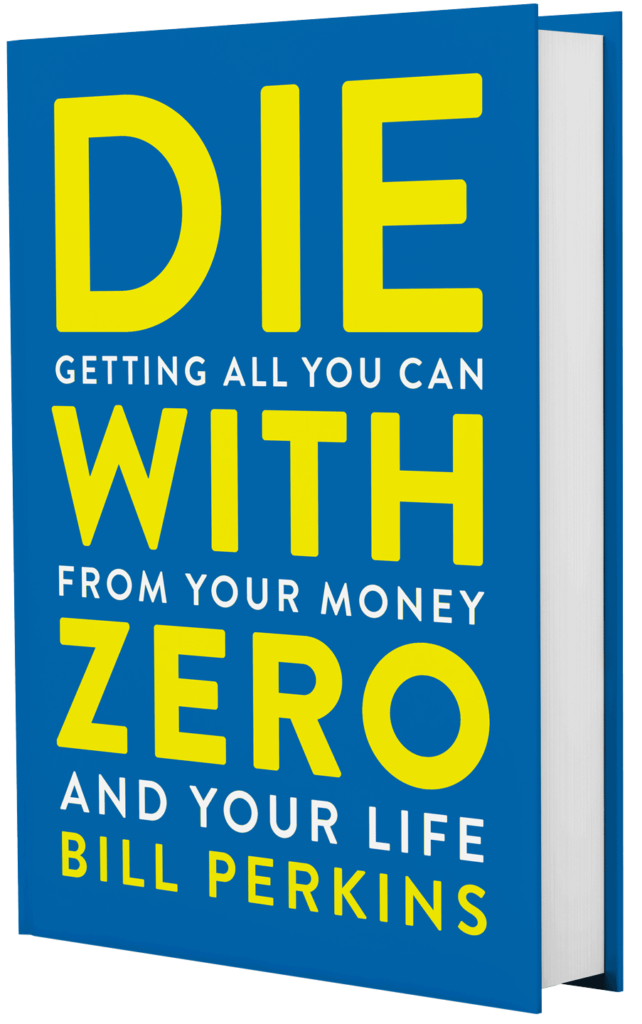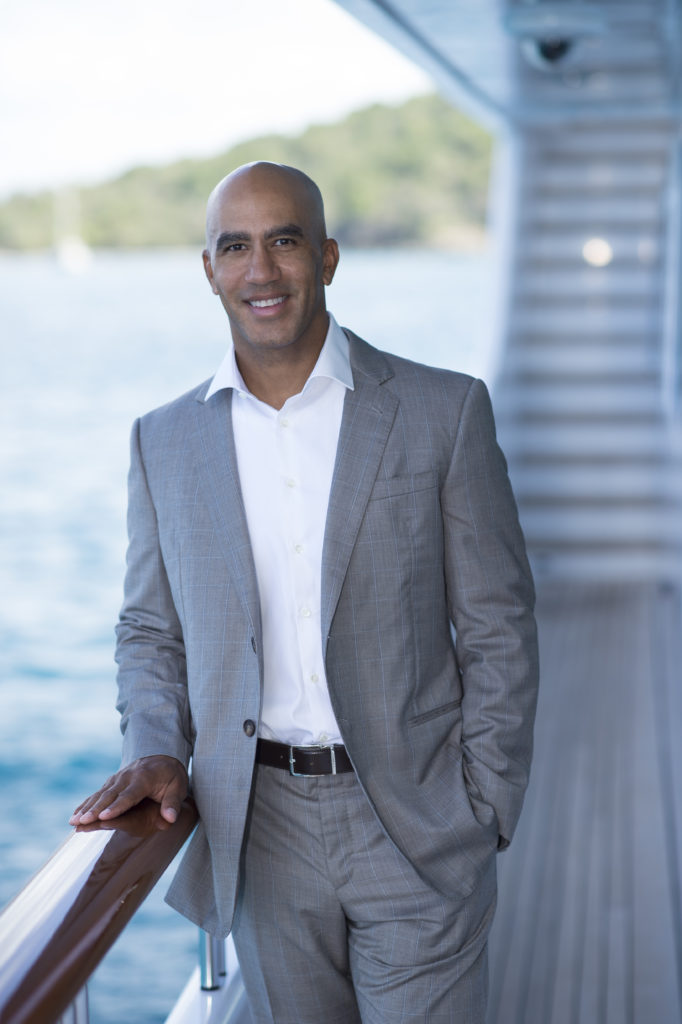Bill Perkins Wants to “Die with Zero”

Wise people sock money away throughout their lives, accumulating a big old nest egg for retirement—right? Bill Perkins wants to update that paradigm, as he explains in Die with Zero, hitting bookstores this month. The Houston-based hedge fund manager, poker player, and wild bet maker proposes a new philosophy based not in the hope of future enjoyment, but in prioritizing life experiences now. We asked Perkins how he developed the ideas behind Die with Zero and about the connections between investing and poker.
Texas CEO: Why don’t we start with what drew you to investing in the first place. Did you know from an early age what you wanted to do?
Perkins: I grew up in the 80s, when Wall Street and the stock market were very prominent in popular culture. I was attracted to it. I went to school for electrical engineering, but I knew I didn’t want to do that for a living. I wanted to learn it, but it didn’t seem like an exciting lifestyle. So, realized early on that the things I wanted to learn and the things I wanted to do were two different things. When it came to what I wanted to do, I decided to go into something that would allow me to leverage my time do all the other things I wanted to do. Finance and trading fit that bill very, very well.
Texas CEO: When did you begin to develop your “die with zero” philosophy of life? Did that hit you very early in life?
Perkins: Snippets of it hit me at different times. When I was an up-and-coming peon on Wall Street, working as a screen clerk on the commodity exchange, I was just happy to be in the business. New York City has a lot of rich people roaming around, and I would notice them. As a delusional kid, I would think, “That’s great that he’s rich, but he got rich too late. What is he going to do with all his money now that he’s old?” Of course, those people were basically my age now.
Texas CEO: [Laughs] Because 50 is really old.
Perkins: That’s the thought of a 21-, 22-year-old, right? I couldn’t imagine someone that age wanting to do the things I wanted to then, in my early twenties. If I take away the ageist bias of my younger self, I see that there’s a neutral concept that was correct: There’s a season for everything. I may have had the age wrong, but there is a period of life at which the utility of the dollar starts to decline. So, I realized early on that there’s a period where you want to enjoy your funds, where you’re at maximum health and can have the most fun. That idea still stands, regardless of my delusion of when that period was. That seed developed into the philosophy I talk about in the book.
Texas CEO: What are some of the most memorable things you’ve done as a result of your “die with zero” philosophy?
Perkins: I do take extra-special effort to create memories with family and friends. A recent example is my mother’s eightieth birthday. We have some Scottish blood in our veins, and I decided we were going to take the whole family to Edinburgh to celebrate. She was born on Christmas, so it will be Christmas in Edinburgh, and then we’re going to a castle in the Scottish countryside and do a little tour of our ancestral home. My thinking now is, “I’m not going to get that many more moments with my family, especially with my mom.” This is a phase in my life where typically I would have other obligations between my career and kids and all that, and if I’d been on autopilot, I would’ve said, “Ah, we’ll do something next year, whenever we can all make it work.” Now I take each chance to create a memory a lot more seriously.

Texas CEO: That idea is somewhat against the prevailing culture. A lot of us think of a life structure where you work for so many years and then retire. You think that’s the wrong way to look at it?
This is not a “Go light your money on fire” type of philosophy. Clearly—especially in times like we’ve been through recently—it’s important to have a safety net. The “die with zero” philosophy does not mean “live with zero.” What we don’t recommend is doing anything on autopilot, whether that be spending or saving. Deliberate living is the key.
“Die with zero” is about looking at the rest of your life, from where you are now to the grave, and saying, “At each stage, what experiences do I want to have, and at what age?” A cornerstone of the book and the philosophy is that you can’t push every single experience to retirement, whenever that is, whether at age 60, 65, or 70. There are things you will not get the same amount of enjoyment from at different periods in your life.
You don’t see that many 65-year-olds out there on WaveRunners or heli-skiing, for example. It may be for health reasons and it may just be that their attitude has changed, but it’s just not the time for that type of experience anymore. There’s a time to get your glowsticks and go raving all night, and there’s a time to walk the Spanish Steps in Rome after the orchestra. In many cases, previous generations missed out on certain experiences because they didn’t calculate their ability to enjoy them as time moves forward. They needed to bring certain experiences forward in life and put certain experiences later in life. When you start to do that, how you save and how you spend changes.
Texas CEO: Part of it, too, was that the previous generation didn’t expect to live as long. We’re only a hundred years on from a time when average lifespans were significantly shorter. Just making it through the next week was a good thing.
Perkins: That’s very true. There was also a culture of uncertainty, a fear of everything being gone at any moment. That caused some people to over-save, to play insurance agents for themselves, basically.
Texas CEO: Women’s earning power was also not as strong back then, so there was more concern about what would happen if the man lost his income.
Perkins: Right. The concept was “You work for X many years, and all your fun is packed into the period from retirement on.” That idea has passed on to current generations. Now I’m coming along and saying, “That’s not optimal for getting the most out of life.” I’m not telling people how to live or what to do. I’m saying that if you stay on autopilot and think you’ll save your big experiences for retirement, you’re not getting the most out of life.
I’m hoping that people take a look at Die with Zero when it comes out and think about how it applies to their life no matter what resources they have. I want to help people get off autopilot and live a more fully, and to save the only thing they have: their time.
Texas CEO: With much of the world in partial lockdown recently, have you been able to create any memories of the kind you talk about?
I’ve been fortunate to have more time with my daughters—to their dismay—and have considered that time a blessing. It’s usually near impossible to get that much time with teenagers. I’ve also connected with extended family in group Zoom chats, some of whom I hadn’t spoken to in a while. Walking and hikes and enjoying nature have been my most common activity. On the negative side, I had completely lost control of my diet and eating habits for a while. It was fun, but I’m paying the price now.
For a lot of us, the pandemic has actually shown us that we’ve been taking our own time for granted.
For a lot of us, the pandemic has actually shown us that we’ve been taking our own time for granted. This wasn’t the most ideal way for it to happen, but as the saying goes, you don’t know what you got till it’s gone. The restrictions around COVID-19 have awoken many people to the fact that they may have been putting their lives on hold due to autopilot. A lot of people have been jarred people awake to realize that en masse.
Texas CEO: Let’s talk about some of the similarities between two activities you’ve spent a lot of time on: investing and poker. Both of them require you to make decisions with incomplete information. How do you deal with the inevitable bad runs?
Perkins: People ask me, “What makes a good trader?” For me, there’s a certain psychology about it—you have to be very stoic about things. You don’t see a boxer get mad because he got punched a couple of times in a ring. It’s part of the job If you’re going to be a boxer. You actually need to like getting punched in the face because it happens so many times.
It’s the same thing with trading. There are studies out there showing that most people need five to seven positive events to make up for one negative event, but traders aren’t like that. If we needed all those positive events to make up for a loss, we couldn’t operate. The best traders who ever existed have a win rate of maybe 60/40. So that typical emotional calculus won’t work. No trader could be that accurate. I’ve always had that ability to be emotionless about losses, to realize they’re part of the job.
Texas CEO: That’s a great lesson for CEOs as well that I don’t hear talked much about. As CEO, all the problems inevitably show up on your doorstep, and the successes are few and and pass quickly. A good CEO doesn’t need those five to seven pats on the back for every one bad turn. If they did, they’d get depressed pretty quickly.
Perkins: When you’re running a business, you look around and see all the successes. But that’s just survivor bias. In every industry, there are tons of heaps in the ash bin. Even the companies that are successful, they have so many bad days—it’s constantly fighting fires, dealing with the competition, internal issues, your own issues as a leader. You must have the disposition to deal with that.
Texas CEO: In you book, it sounds like when you made the move from the Northeast to Texas, that you had the same limited view of Texas that most Northeasterners have—it’s all flat, barren plains and the people are all a certain type.
Perkins: When I moved to Houston, I didn’t have much hesitation. When I was younger, ambition overruled everything, and I saw opportunity there. But I was shocked at how different Texas was from my preconceived notions, how diverse it was. Getting to Dallas and North Texas, going to Austin, traveling around the state—it was a really great thing. First of all, with the money I saved, I felt like I stole something. I lived in a pizza oven in New York, and all my money went to rent and cost of living. But the people in Texas were also very friendly, and even then, Houston was the growing, cosmopolitan city it still is. I came to love Texas pretty quickly.
People still have those preconceived notions, though. Legendary stories die hard. Texas has that Wild West background and culture, and imagery that’s very powerful. That’s actually pretty great, right, but it does come with those preconceived notions that just aren’t accurate anymore.

Texas CEO: Have you seen the poker world change since you started? Now we’ve got kids playing 50 hands a minute online, and by 25 they’ve seen everything.
Perkins: The poker world has become much more analytical, and that knowledge is diffusing through the poker community. Before, it was a few wizards running simulations and working through the math, but now most players think through those strategies. The shift from seeing poker as a game of chance to a game of skill has invited many, many people to study the game. Now that poker is seen as a skill, more people want to learn and get better at it. I’d say the average poker player is getting better and better.
Texas CEO: Do you see a lot of people going from poker to investing? Do you think poker can be a good training ground?
Perkins: I think the biggest thing is that poker players understand expected value and odds and risk-reward calculations. A lot of the things they do—discipline, bankroll management, etc.—it’s basically trading. So, yes, you can learn some of that stuff playing poker. It’s easier for a professional poker player to move into trading and investing than it is for an investor or a trader to move into poker.
Texas CEO: How has your approach to the game changed over your career? As you made more money, did it become less interesting?
Perkins: In the early days, I wasn’t as interested in learning the skill of poker as much as having fun. But as time went on, I realized that this is an expensive hobby. I said “Let me get some skills before I sit down and vaporize a hundred buy-ins.” I wanted to put some discipline in it. A lot of business professionals are in relaxation mode when they play poker, but with a professional, it’s is a job. They’re taking it as seriously as you did your last board meeting or acquisition. That disconnect can be costly. I’m not at pro level, but I am putting more effort and time in to increase my skills and knowledge.
Texas CEO: You’re known for making prop bets—interesting novelty wagers. What’s your favorite one?
Perkins: I think the best one was the Staples brothers, when I bet on whether they could reach the same weight as each other within a year. That meant that Jaime Staples had to lose a bunch of weight, and his brother had to gain some. I think that was my favorite prop bet just because it was so inspirational. They did a video blog and It had this huge ripple effect of inspiring other people to get in shape. People thought, “If he can do it, I can do it.” People did other challenges for themselves, whether it was losing weight or stopping smoking or something else. It showed other people that you can see these outstanding, lasting benefits in your life if you take it one step at a time and maintain discipline.
Texas CEO: You’ve given a lot of money away, some of it publicly. What is your approach to philanthropy?
Perkins: At the end of the day, using my resources to make a positive impact is important to me, whether it’s the Dave Thomas Foundation with adoption, Save the Children, hurricane relief, education and scholarships, refugee programs, or anything else whatever it is. To me, the most important thing is that these resources get deployed efficiently and solve real problems. Make it better and achieve their goal, ending suffering, and giving other people opportunities.
But I am one individual, and I won’t do anything great alone. I have this saying, “Nobody does anything great alone.” Even Jesus had disciples. I do some public giving to get other people aware and inspired, so they donate too or bring something to bear other than money to help solve the problem. I like to see people jumping in and supporting these issues, retweeting things or otherwise sharing things or discussing it at dinner with somebody. You never know how far that ripple is going to go.




6 Comments
Great article. Bill Perkins sound like a person I’d like to meet!
Very thought provoking read! Definitely gives me pause about shifting my mentality.
Bill P is living his best life and it shows. Can’t wait to get his book.
Great interview Bill. I’ve pre-ordered the book and can’t wait to read it as soon as it arrives!
The Staples brothers’ prop bet was epic. The ripple effects of that are still going on to this day.
How do you take into account that you will spend 70% to 75% of your earnings in your last two years of life on medical expenses and save exactly to that figure? That assumes you do not want burden other people or family members with covering these costs. If you spend your money on experiences and burden people later, that is a selfish act. So to avoid a selfish or painful outcome, what is a good number to have later, assuming a retirement in 15 years? $1 million, $1.5 million, $2 million, etc.?
There is noticeably a lot of money comprehend this. I assume you made specific nice points in functions also. elliridocond.ml